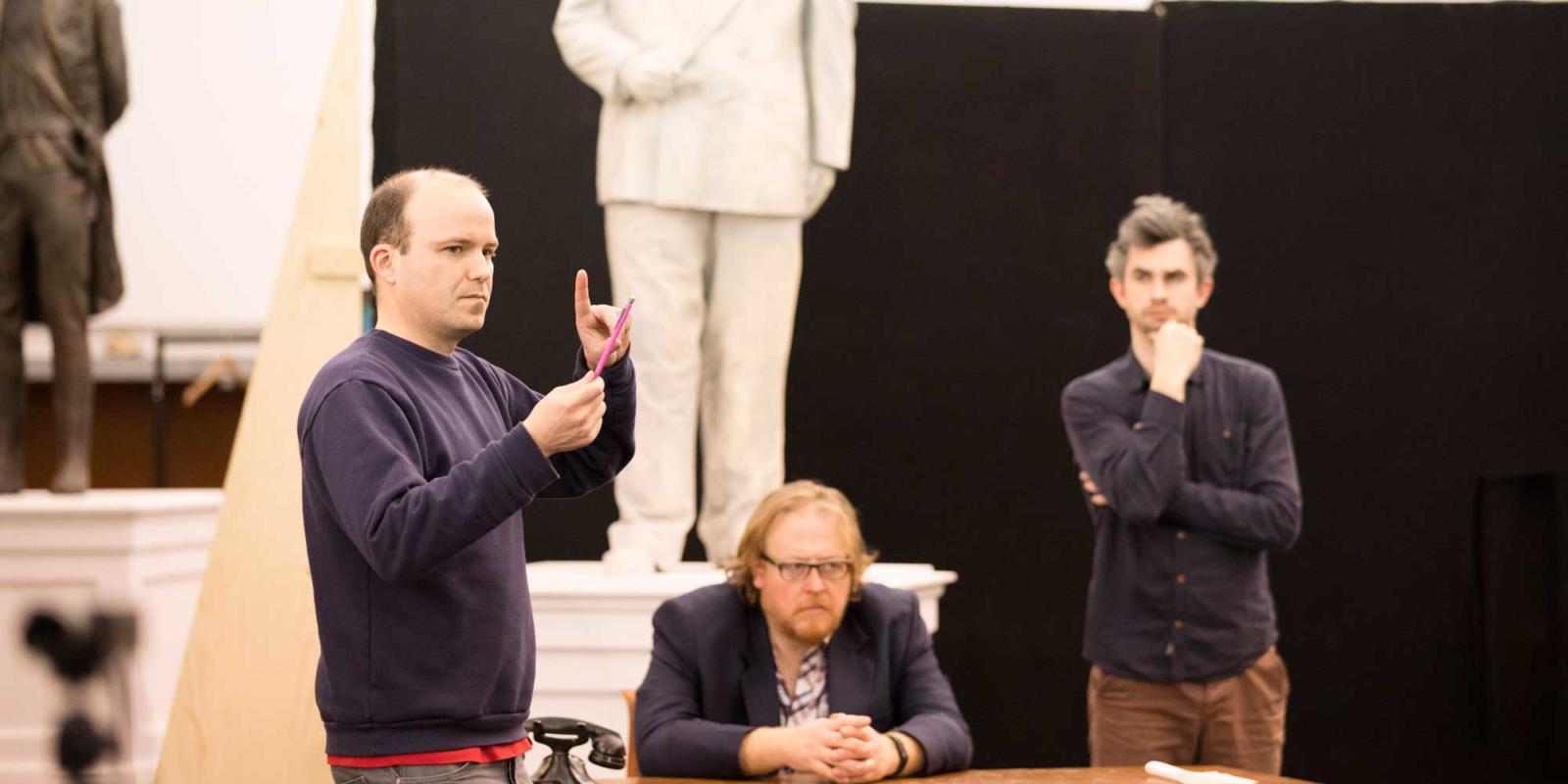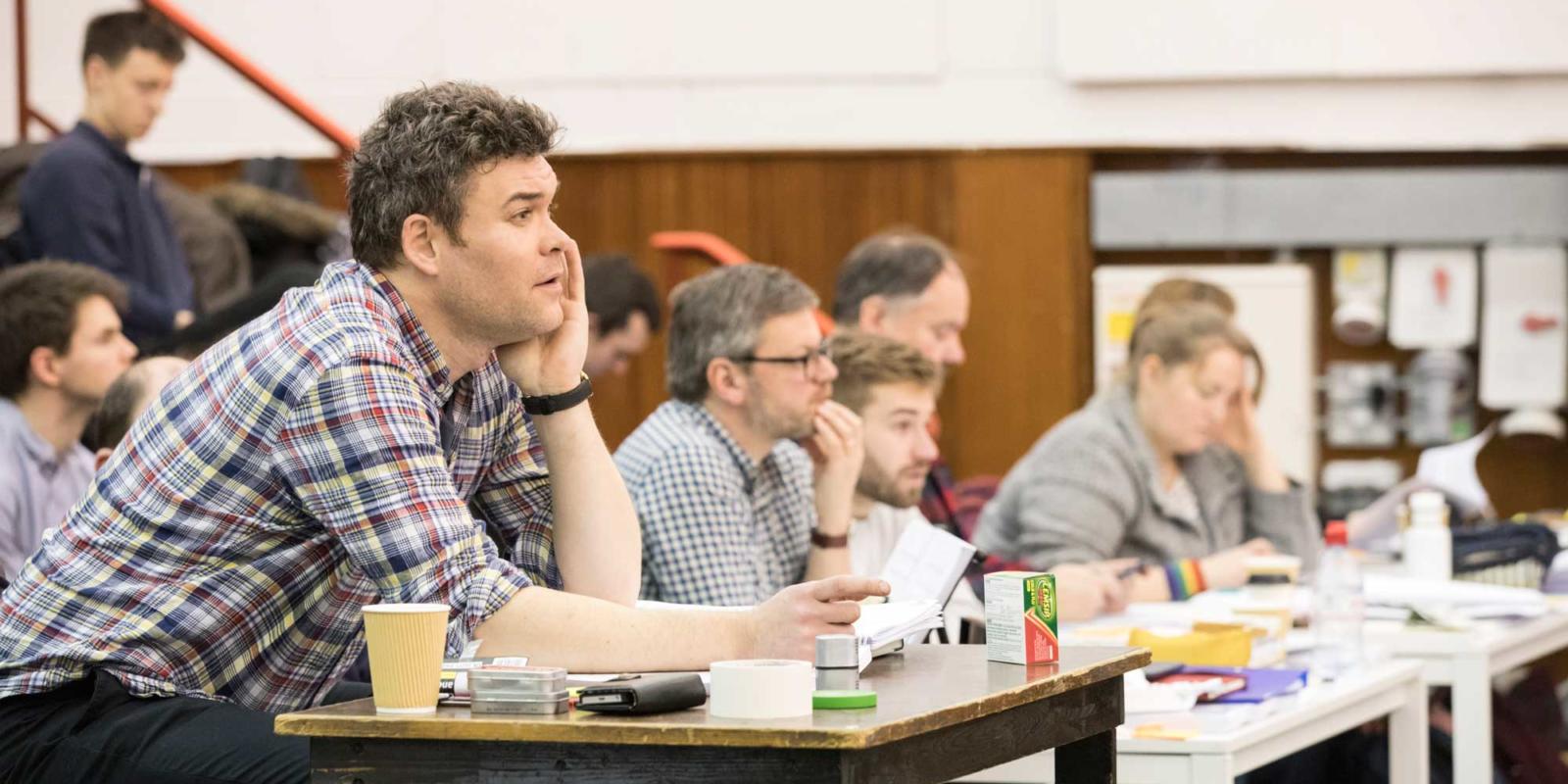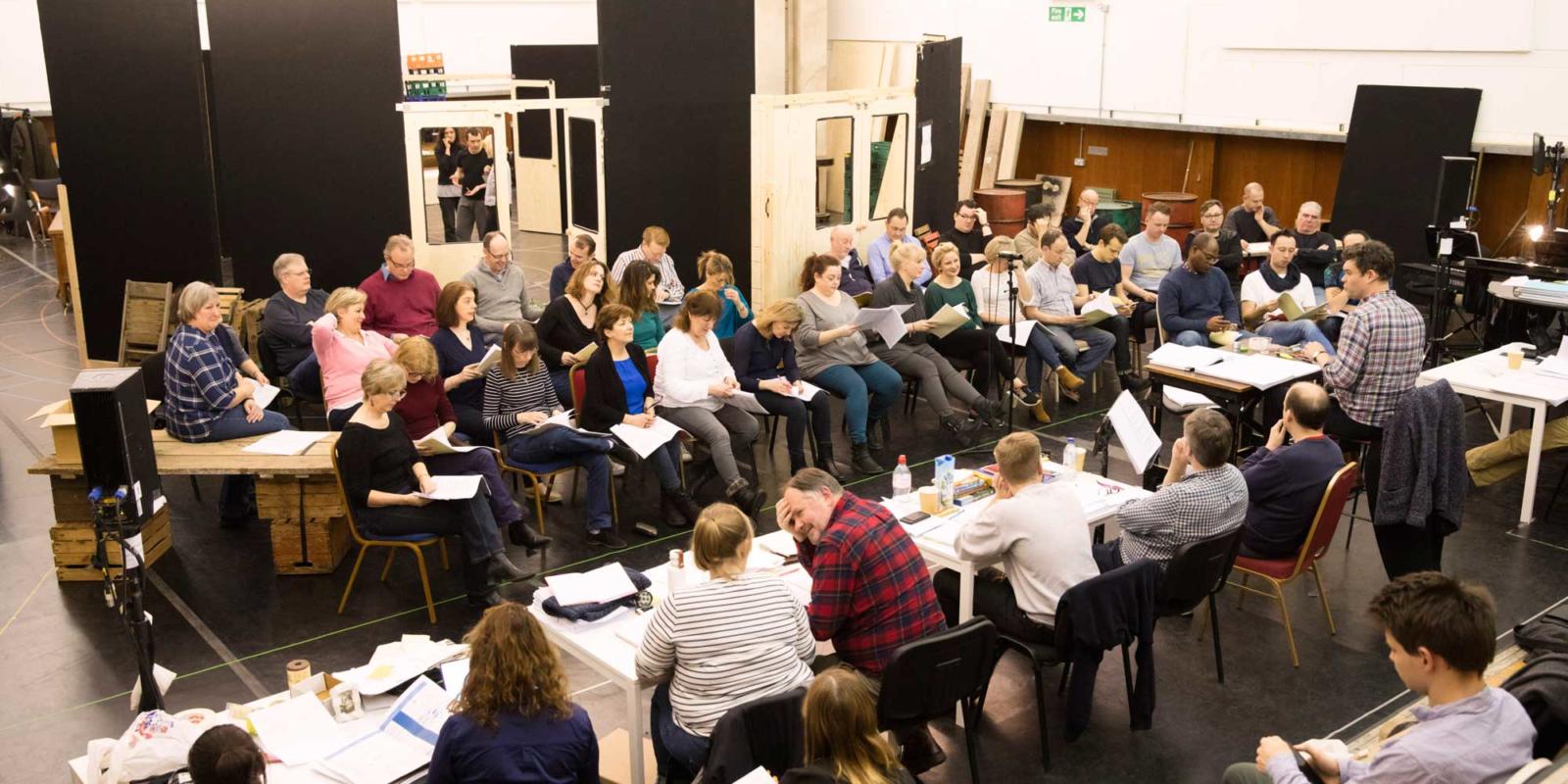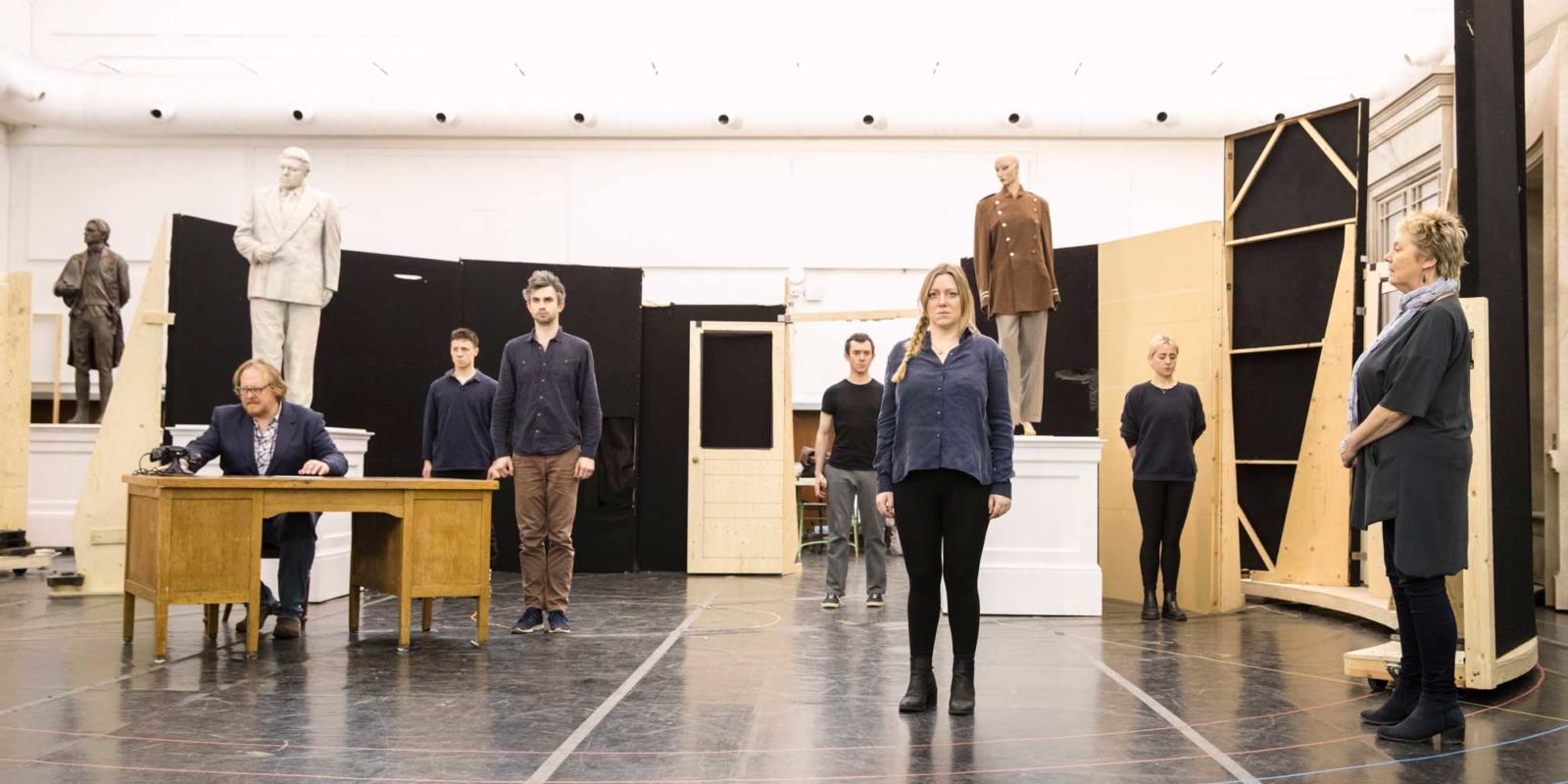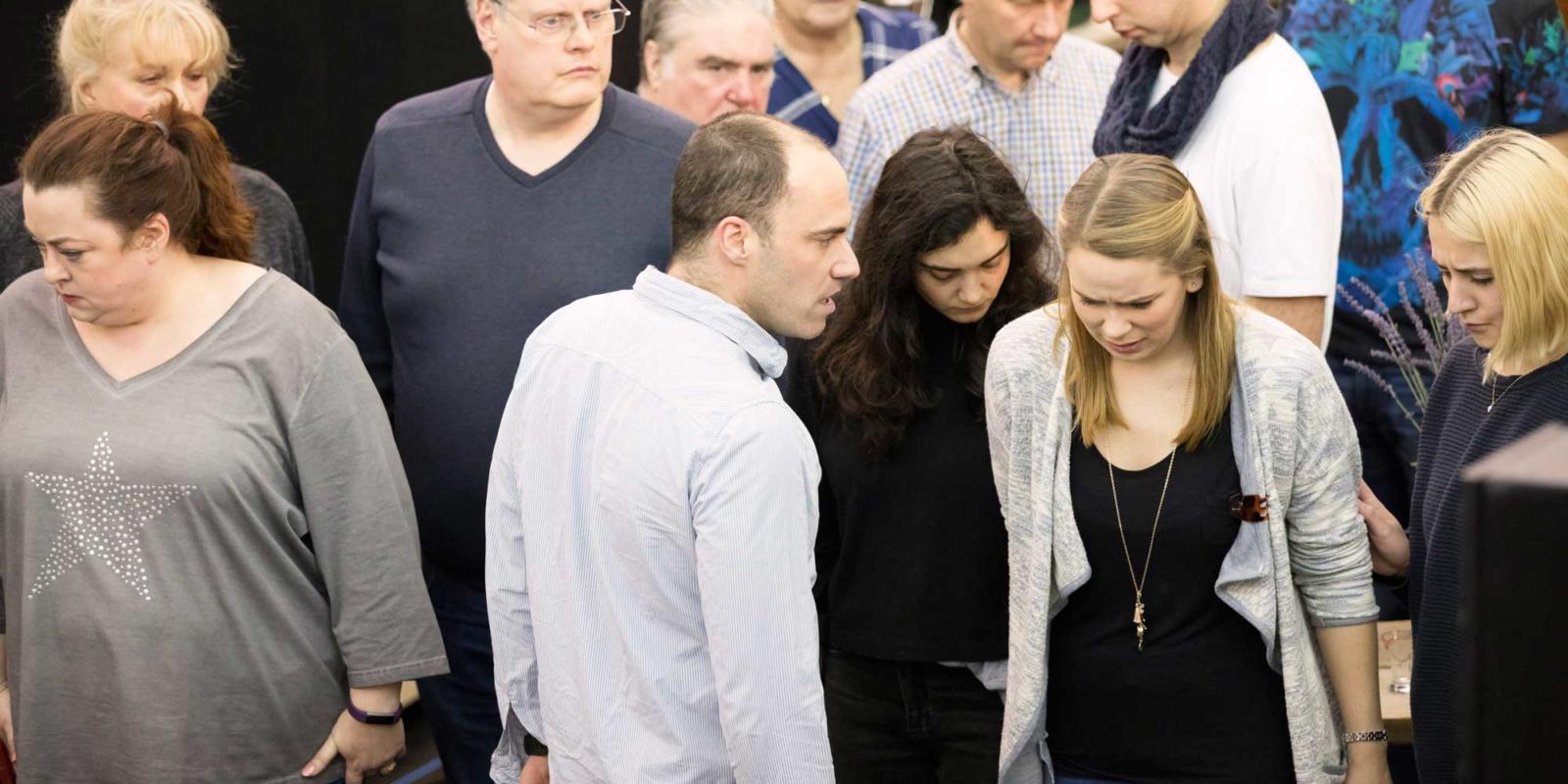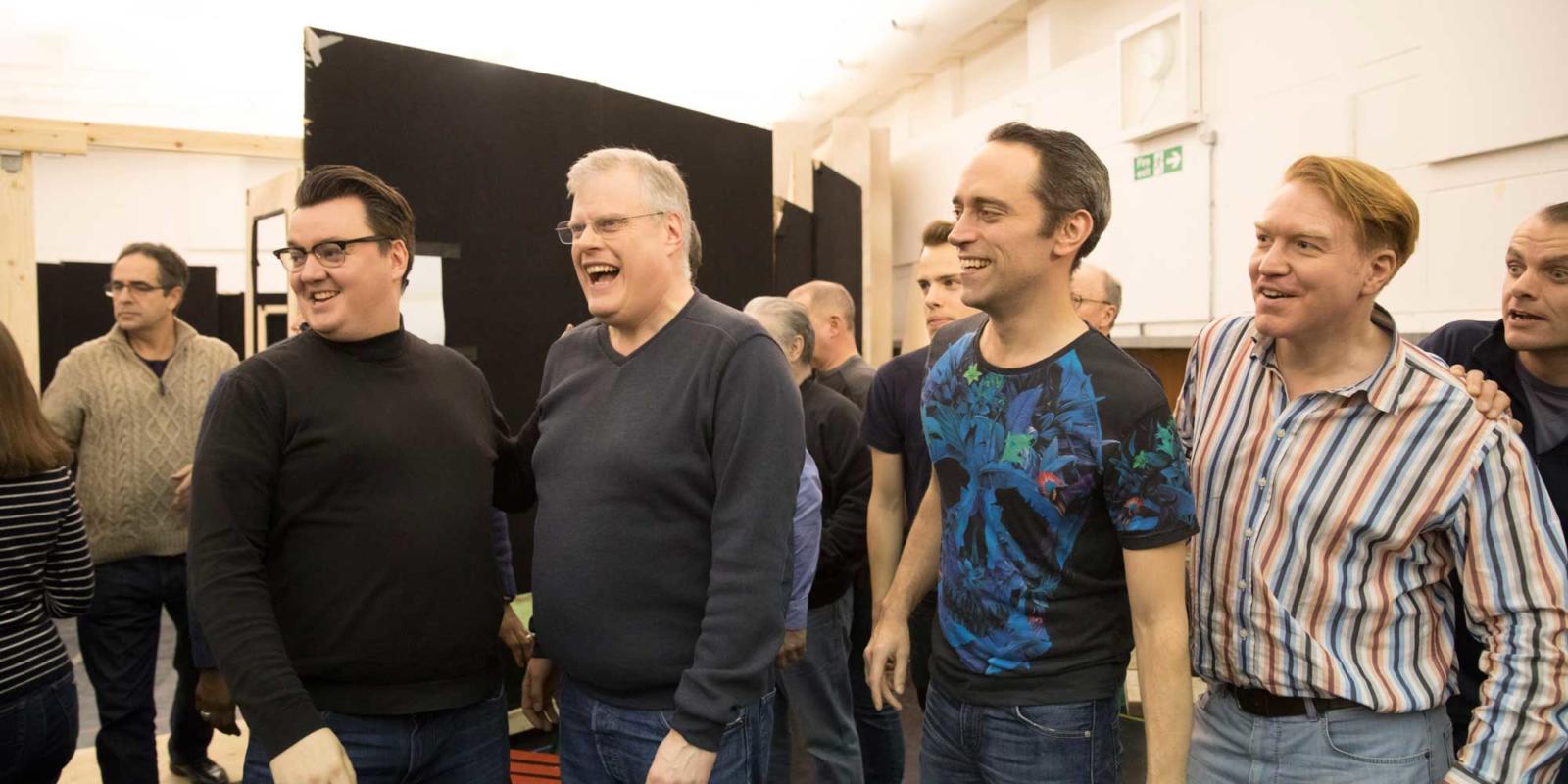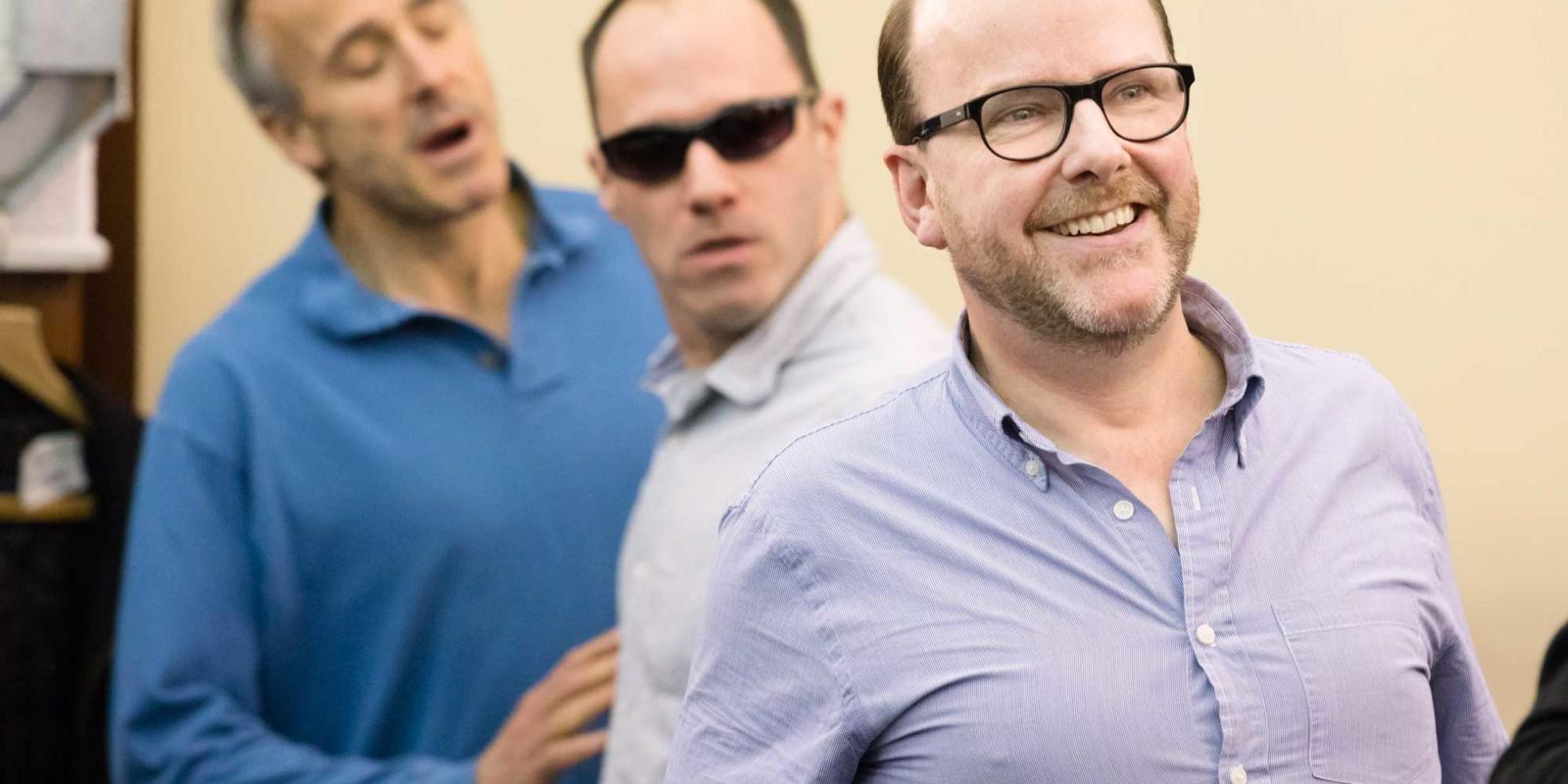A tale for our time: an interview with Rory Kinnear and Ryan Wigglesworth
17th February 2017 in News
This season, Ryan Wigglesworth presents his first opera at ENO. Based on Shakespeare’s play of the same name, The Winter’s Tale will be directed by Olivier Award-winning actor, Rory Kinnear, who brings considerable Shakespearean experience, notably in the National Theatre’s Hamlet (2010) and Othello (2013), to the production. Ahead of the world premiere on 27 February 2017 at the London Coliseum, Ryan and Rory met with ENO Friends, Patrons and members of The Winter’s Tale production syndicate at the Groucho Club in November 2016 to discuss this new work.
The Winter’s Tale rehearsals
Firstly, what drew you both to The Winter’s Tale?
Rory Kinnear (RK): The Winter’s Tale is a fantastic subject for an opera. It rises above the level of humanity to a realm that music operates on – one beyond comprehension or logic. Act V, for me, remains the most sublime piece of writing both dramaturgically and poetically. The challenge, of course, is cutting down such a rich play; it feels both like an act of creativity and of destruction.
Ryan Wigglesworth (RW): The reality is the play in its entirety is too long to set to music; this problem exists for any operatic adaption. The key is, then, to make cuts that are sensitive to the drama, thus ensuring the life and colour is retained within the language.
I begun by creating something very skeletal, then I fleshed it out when I started composing. From there I could see more clearly what was needed. The challenge comes when dealing with the play’s poetic highlights, those we initially thought we couldn’t possibly cut because everyone would be waiting for them! In The Winter’s Tale these moments include famous lines such as “I have drunk, and seen the spider.” (Act II; scene i) and ‘O, she’s warm!’ (Act V, scene iii). We realised early on though that music would carry the drama sufficiently at such moments.
How would you describe your directorial concept of the piece?
RK: I’ve always been struck by the extent to which the play centres on time. This manifests most pertinently in the 16-year gap between Acts III and IV. This fascinating temporal disjoint played an important role in inspiring the setting of the play. We begin in 2001 in Acts I, II and II, and end in 2017 in Act IV and V, with Leontes’ Sicilia and Polixenes’ Bohemia mapped onto Azerbaijan and Armenia respectively. For a contemporary opera we felt it was natural to assume a contemporary setting. This set us up to explore, just as Shakespeare did in the seventeenth century, themes surrounding the jostling of power between countries, political and personal tyranny, the relationships between humans and the natural world.
There are plays of Shakespeare’s that come in and out of focus politically at points in their history. This is certainly the case with The Winter’s Tale, which recently increasingly seems like an urgent text.
How do you create a palette and sound world for this play given the context in which you’ve set it?
RW: A number of things seemed set in stone straight away. Once again, time – and, namely the passing of 16 years – is important. We don’t have a figure per se in the opera to announce this moment, but we agreed it was essential to make it palpable in the music.
RK: For us Mamillius, Leontes’ child son, is a time figure; he is in control, a ring master. He dies in scene ii of Act III, but he remains a figure for us at least throughout the opera. Whilst also a central character, we chose for Mamillius to be mute; his wonderful lines remain in the opera, but they are not delivered by him. So Ryan has been writing a lot of music for a character who doesn’t speak. Though he’s a constant presence, and indeed ends the opera.
And how have the cast taken on this new work?
RW: Very simply, it has been a dream to write for this illustrious cast. It is inspiring to work with a team of British singers – Iain Paterson (Leontes), Sophie Bevan (Hermione), Leigh Melrose (Polixenes), Susan Bickley (Paulina) – at the top of their game and also, of course, ENO’s world-class Chorus.
The Winter’s Tale opens on 27 February with subsequent performances on 3, 8, 10 and 14 March. To book tickets visit eno.org or call the ENO Box Office on 020 7845 9300

